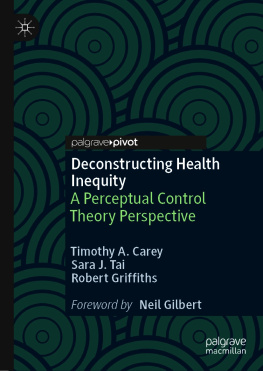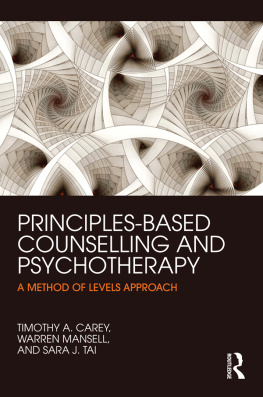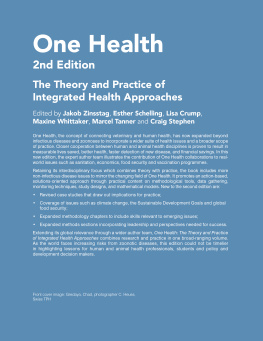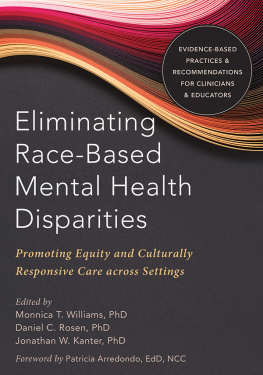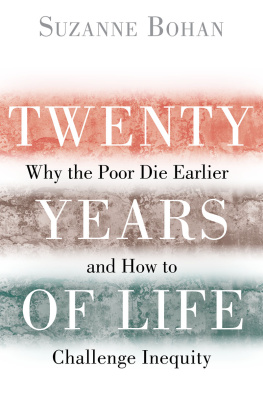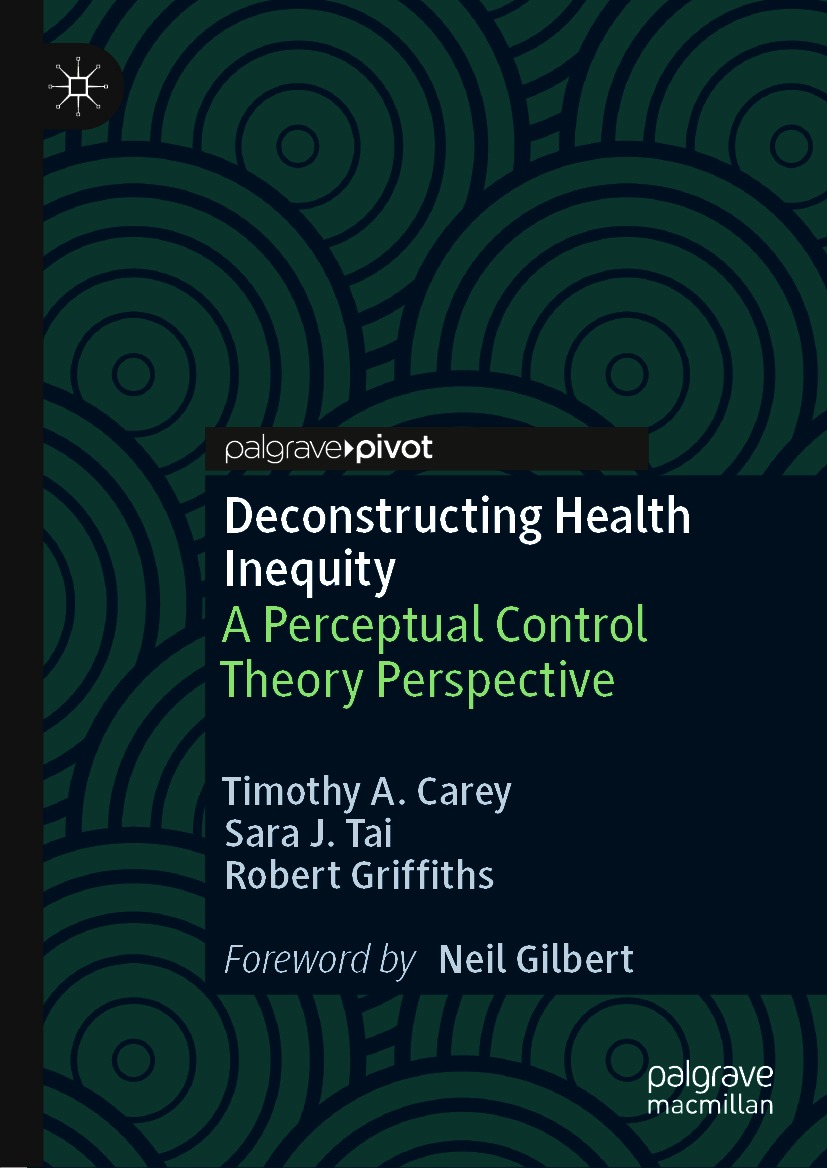Timothy A. Carey
Institute of Global Health Equity Research, University of Global Health Equity, Kigali, Rwanda
Sara J. Tai
University of Manchester, Manchester, UK
Robert Griffiths
University of Manchester, Manchester, UK
ISBN 978-3-030-68052-7 e-ISBN 978-3-030-68053-4
https://doi.org/10.1007/978-3-030-68053-4
The Author(s), under exclusive license to Springer Nature Switzerland AG 2021
This work is subject to copyright. All rights are solely and exclusively licensed by the Publisher, whether the whole or part of the material is concerned, specifically the rights of translation, reprinting, reuse of illustrations, recitation, broadcasting, reproduction on microfilms or in any other physical way, and transmission or information storage and retrieval, electronic adaptation, computer software, or by similar or dissimilar methodology now known or hereafter developed.
The use of general descriptive names, registered names, trademarks, service marks, etc. in this publication does not imply, even in the absence of a specific statement, that such names are exempt from the relevant protective laws and regulations and therefore free for general use.
The publisher, the authors and the editors are safe to assume that the advice and information in this book are believed to be true and accurate at the date of publication. Neither the publisher nor the authors or the editors give a warranty, expressed or implied, with respect to the material contained herein or for any errors or omissions that may have been made. The publisher remains neutral with regard to jurisdictional claims in published maps and institutional affiliations.
Cover illustration: John Rawsterne/patternhead.com
This Palgrave Macmillan imprint is published by the registered company Springer Nature Switzerland AG
The registered company address is: Gewerbestrasse 11, 6330 Cham, Switzerland
Foreword
In recent years concerns about increasing inequality have animated the study of social and health disparities. The considerable growth of research in this area has produced an impressive body of literature focussed on the proportional differences in adverse social and health outcomes found among geographic regions, usually wealthy countries, as well as within demographic groups, typically categorised by gender, race, ethnicity, and sexual orientation. Disparities research encompasses a wide range of problems including, mental illness, homicide, imprisonment, infant mortality, alcoholism, drug addiction, life expectancy, school dropouts, obesity, and single parenthood. Efforts to explain these problems frequently attribute the proportional differences that appear in both geographic and demographic studies to abstract structural forces. On the demographic level, for example, disparities among racial groups are often depicted as resulting from systematic barriers of institutionalised racism. And the presumed impact of economic inequality exemplifies the conventional explanation for health disparities among geographic regions. Concentrating on the latter, Timothy Carey, Sara Tai, and Robert Griffiths book poses a formidable intellectual challenge to the prevailing assumptions that undergird the health inequities literature in particular and the disparities research in general.
Deconstructing Health Inequity: A Perceptual Control Theory Perspective is a nuanced study that illuminates the theoretical, logical, and empirical limitations, which pervade the health inequities research. On a theoretical level the analysis draws attention to the classic issue concerning the impact of structure and agency on human behaviour. From a structural perspective, individual outcomes are seen to be governed by abstract forces (e.g. class, institutionalised racism, economic inequality) emanating from the social structure; from the perspective of agency, outcomes are seen as more influenced by subjective responses to the environmental context in which one exists.
Carey, Tai, and Griffiths analysis underscores the extent to which the abstract forces of structural theory dominate the explanation of health inequities. Seeking to clarify the theoretical basis for the prevailing explanation of health inequities, they ask the logical question: What is the causal link between economic inequality and adverse health outcomes? According to Richard Wilkinson and Kate Picketts widely cited research, the standard answer is that income inequality generates psychological stress, which is empirically shown to have deleterious effects on physical and mental health. Really, ask Carey, Tai, and Griffiths: Are we really that fickle as a species that we can become psychologically and socially debilitated, as well as seriously compromised by life-threatening physical health conditions, at the idea of people doing better than us? And how does this causal line of reasoning square with Wilkinson and Picketts finding that people tend to compare themselves with others who were similar to them, not those considerably higher on the economic ladder or the reality that most people do not know the degree of inequality in their country, how much it is changing and where they place in the income distribution. Stress may cause illness, but there is no empirical evidence that inequality (not abject poverty) causes stress.
This persuasive analysis of the implausible line of reasoning in the economic-inequality-health-inequities chain of causality is followed by the authors painstaking examination of the empirical evidence, which reveals a body of research racked by methodological weakness, statistical anomalies, contradictory findings, and a general absence of conceptual clarity. Indeed, their findings lend detailed substantive verification to an earlier review of 98 studies that reports little support for the idea that income inequality is a major, generalizable determinant of population health differences within or between rich countries.
Going beyond the deconstruction of health inequities, as the books subtitle signals, the authors introduce an alternative approach to conceptualising the problem. In contrast to the dominant perspective of structural theory, they argue for examining health inequities through the alternative lens of agency as expressed in perceptual control theory. This perspective involves seeing health as essentially an individual affair and shifting the variable of individual control to centre stage of health outcomes. The extent to which perceptual control theory can deliver a precise scientific understanding of health inequities is for the reader to decide.
Deconstructing Health Inequity raises intriguing questions about the theoretical and empirical foundations of disparities research. It is a rigorous application of critical thinking that elevates the analysis of economic inequality and health inequities to a new level.
Neil Gilbert
Berkeley, CA, USA
Neil Gilbert
is the Milton and Gertrude Chernin Professor of Social Welfare at the University of California, Berkeley.

